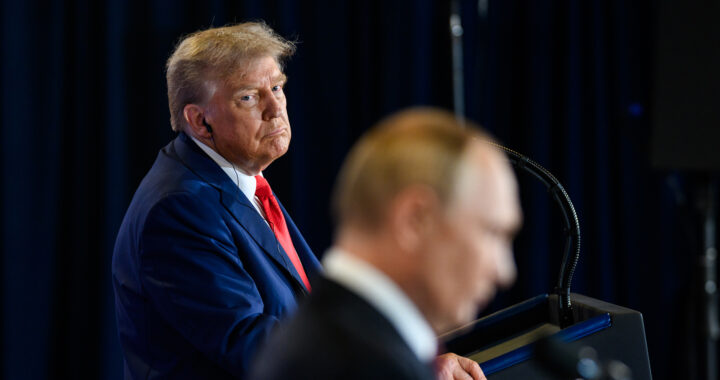United States President Donald Trump has issued a strong call for NATO allies to immediately halt the purchase of Russian oil. He emphasized that continuing energy imports from Moscow severely weaken the bargaining position of the alliance against Russia. This is especially true during ongoing hostilities involving Ukraine.
Targeting Russia and China
Note that the request was part of public remarks made on 3 September 2025. The particular trigger for this demand was the recent escalation in Poland, where Russian drones entered the Polish airspace. This also prompted the U.S. president to underscore the notion that purchasing Russian oil is not only shocking but also counterproductive.
Trump warned that nations disregarding this demand risk undermining NATO solidarity at a critical moment. He highlighted that Turkey, Hungary, and Slovakia remain notable buyers of Russian petroleum, while Turkey is the third largest global customer after China and India. He argued these purchases directly sustain Russian economic strength.
In addition to his appeal directed at NATO members, the U.S. president threatened China with unprecedented tariffs ranging between 50 percent and 100 percent if it continues to import oil from Russia. He explained that such punitive measures are necessary to reduce the energy revenues of Russia and exert pressure on China.
Trump insisted that NATO has shown less than complete commitment to the conflict. He argued that purchases of Russian oil represent a dangerous weakness within the alliance strategy. He underscored that true unity requires economic sacrifices, stressing that reliance on Moscow energy threatens the capacity of NATO to resist Russian aggression effectively.
He stated confidently that the Ukraine war would never have occurred under his leadership. He repeatedly maintained that this is not his war but instead belongs to former U.S. president Joe Biden and current Ukrainian leader Volodymyr Zelenskyy. He promised to focus his efforts on brokering peace and saving civilian lives.
Geopolitics and Energy Politics
Earlier in September, Trump met Russian President Vladimir Putin in Alaska. The discussions concluded without concrete progress toward peace negotiations or a ceasefire. Observers described the meeting as cordial but unproductive, indicating that the gap between Washington and Moscow remains significant despite repeatedly hinting at potential reconciliation.
The situation worsened after Russian drones violated Polish airspace, prompting Poland to invoke Article 4 of the NATO treaty. This clause requires alliance consultations whenever a member perceives a threat. The incident heightened regional tensions, raising fears of escalation that can lead to the invocation of mutual defense obligations.
In response, NATO Secretary General Jens Stoltenberg announced the launch of the Eastern Sentry program. This initiative aims to deter further Russian incursions and reaffirm solidarity with Poland. The program includes enhanced surveillance, joint exercises, and increased military readiness, sending a strong message of deterrence across Eastern Europe.
Energy politics remain central to the debate. Russia continues to rely on oil exports as a primary source of funding for its war effort. Despite sanctions, countries including China, India, and several NATO states purchase Russian petroleum, undermining broader Western strategies intended to reduce Russian revenues and diplomatic leverage.
Unanswered questions remain regarding how the U.S. intends to enforce a complete halt in Russian oil purchases by NATO states. It is unclear whether it will apply sanctions or penalties against noncompliant allies. Similarly, details concerning implementation timelines and monitoring mechanisms for ensuring compliance have not been disclosed.
